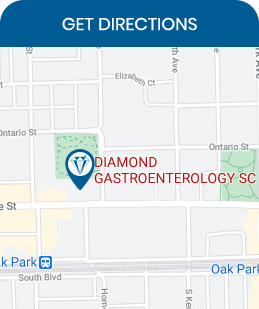Celiac Disease Treatment Specialist Q&A
Celiac disease can be diagnosed and treated easily, especially if caught in the early stages of showing your signs and symptoms. Do not let celiac disease stay silent, contact Diamond Gastroenterology in Oak Park, IL today to learn more about how we can help you manage your celiac disease. For more information, call us or book an online appointment.


Additional Services We Offer
▸ Endoscopy
▸ IBS Treatment
▸ Crohn’s Disease
▸ Ulcerative Colitis
▸ Abdominal Pain
▸ Colonoscopy
▸ Rectal Bleeding
▸ Colon Cancer Screening
▸ Procedures
▸ Specialties
Additional Services We Offer
▸ Endoscopy
▸ IBS Treatment
▸ Crohn’s Disease
▸ Ulcerative Colitis
▸ Abdominal Pain
▸ Colonoscopy
▸ Rectal Bleeding
▸ Colon Cancer Screening
▸ Procedures
▸ Specialties





